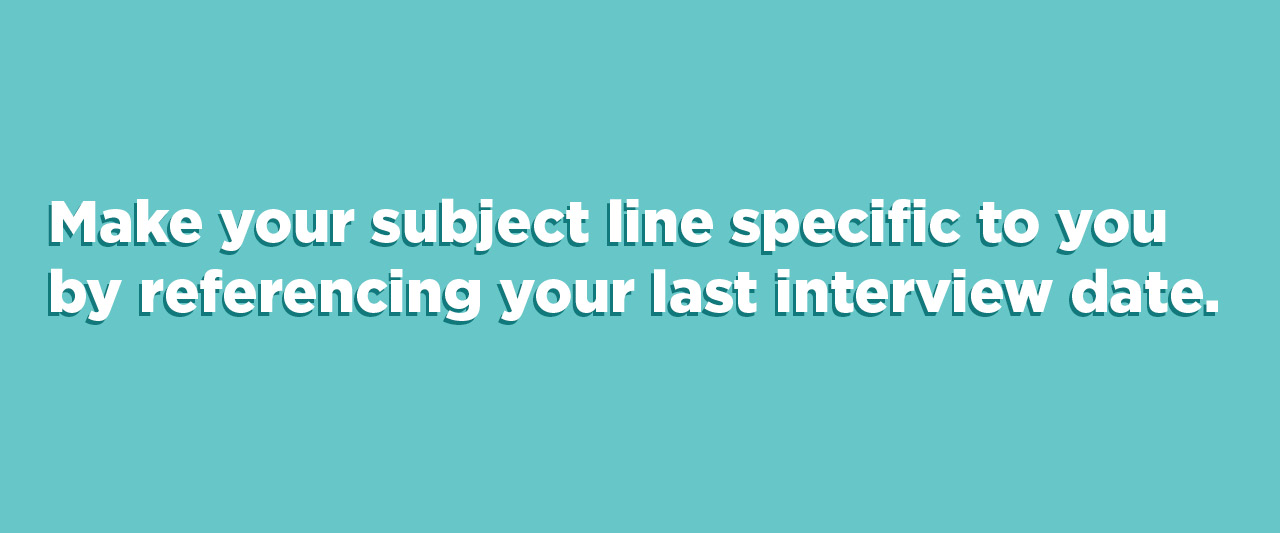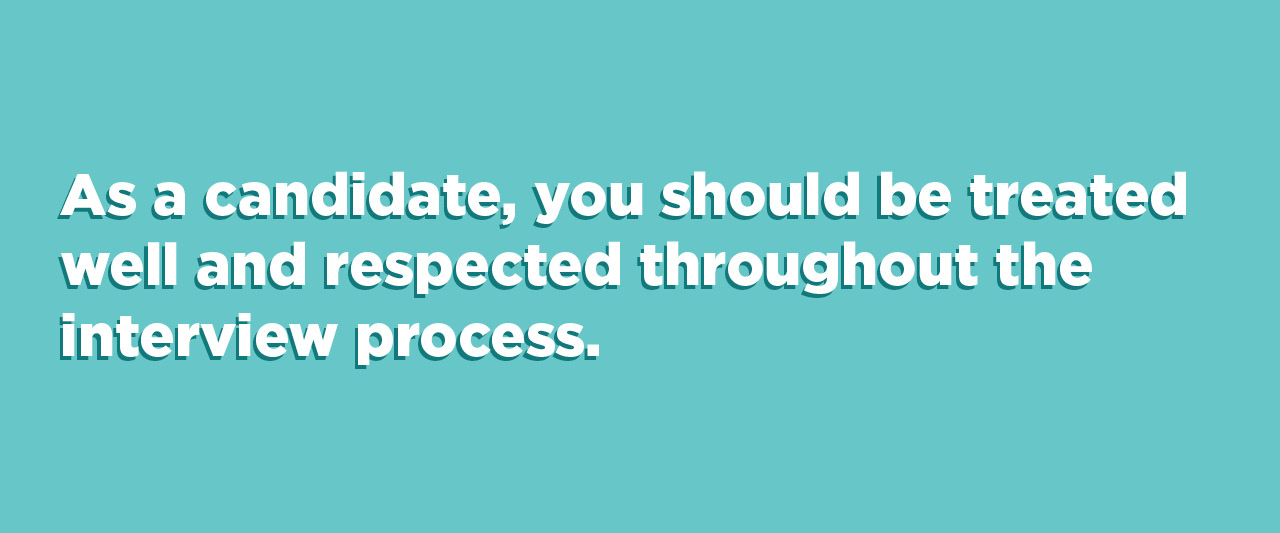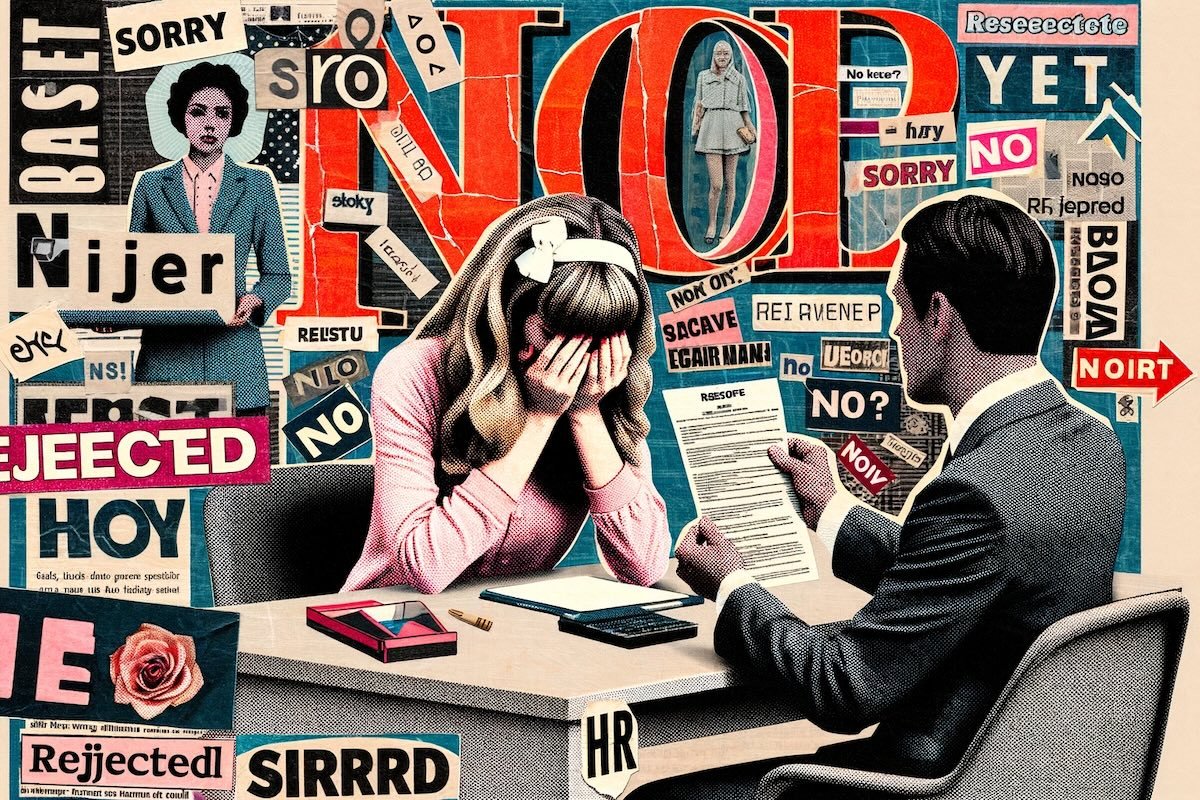The interview process is chock full of documents.
First, you write a
tailored resume alongside a
thorough cover letter, introducing yourself as the sparkling candidate you are for the job opening. If you’re lucky, you land a phone interview, ace the in-person interview, and kill your interview project. Once that giant part of the interview process is done, you have likely
sent a thank you note, tying it all together in a neat little proverbial bow.
When you ask, the hiring manager tells you she will be in touch “soon.”
Fast forward one week and...nothing.
Fast forward two weeks and...still nothing.
What do you do now? Write a follow up note, using these steps.
Write A Subject Line They Will Open
Hiring managers can be extremely busy people. And often, they are hiring for multiple roles, conducting different parts of the interview process for several roles, and working on onboarding new hires—all at the same time.
Assuming your hiring manager falls into the “extremely busy” bucket,
make your subject line specific to you by referencing your last interview date. A good subject line could be Re: My Interview on Thursday, June 14th.
If you had previously emailed multiple times with the hiring manager you might also reply to the last email you or she wrote. That way, all the information and correspondence you have had is archived in the thread. This is a good way to catch the hiring manager’s attention and (if it has been a very long time) you'll also jog her memory as to who you are.
Be Friendly, Brief and Positive
It probably goes without saying that you don’t want to start this note by chastising the hiring manager. Instead, follow these steps to write a perfect follow up note to a hiring manager.
- Greet the hiring manager by name
- Reintroduce yourself and reference your last interview date and/or correspondence
- Mention the job opening by name and reference some key takeaways from your interview process
- Ask for an update on the job opening—see if it's still open
- Thank the hiring manager for her time and give best wishes regardless of what the outcome may be
This should not be a terribly long email. Each of the above points should be addressed in a single sentence apiece. Include only crucial details, positive intentions, and your continued interest in the position.
You don't have to rehash the entire interview process. A good hiring manager will have documented the process thoroughly. Once you have these few sentences written and proofread, send the email out. If you're worried about the responsiveness of the hiring manager, consider sending this note on a weekday morning. Avoid sending it late at night or over the weekend.
A Word of Caution
Everyone gets busy and forgets to respond to an email or two. However, if a hiring manager seems to be blatantly ignoring you, that’s not cool. It’s 2018 and unemployment is at a decade-long low. It’s a job candidate’s market. If a hiring manager is being negligent or downright unprofessional in communications, consider that it might be a
reflection on the organization as a whole.
While you might think you really want this job, it might not be a good fit. As a candidate, you should be treated well and respected throughout the interview process. If you feel that you aren’t being treated like the prize that you are, you might want to reconsider if this job is really an opportunity you want to pursue.












